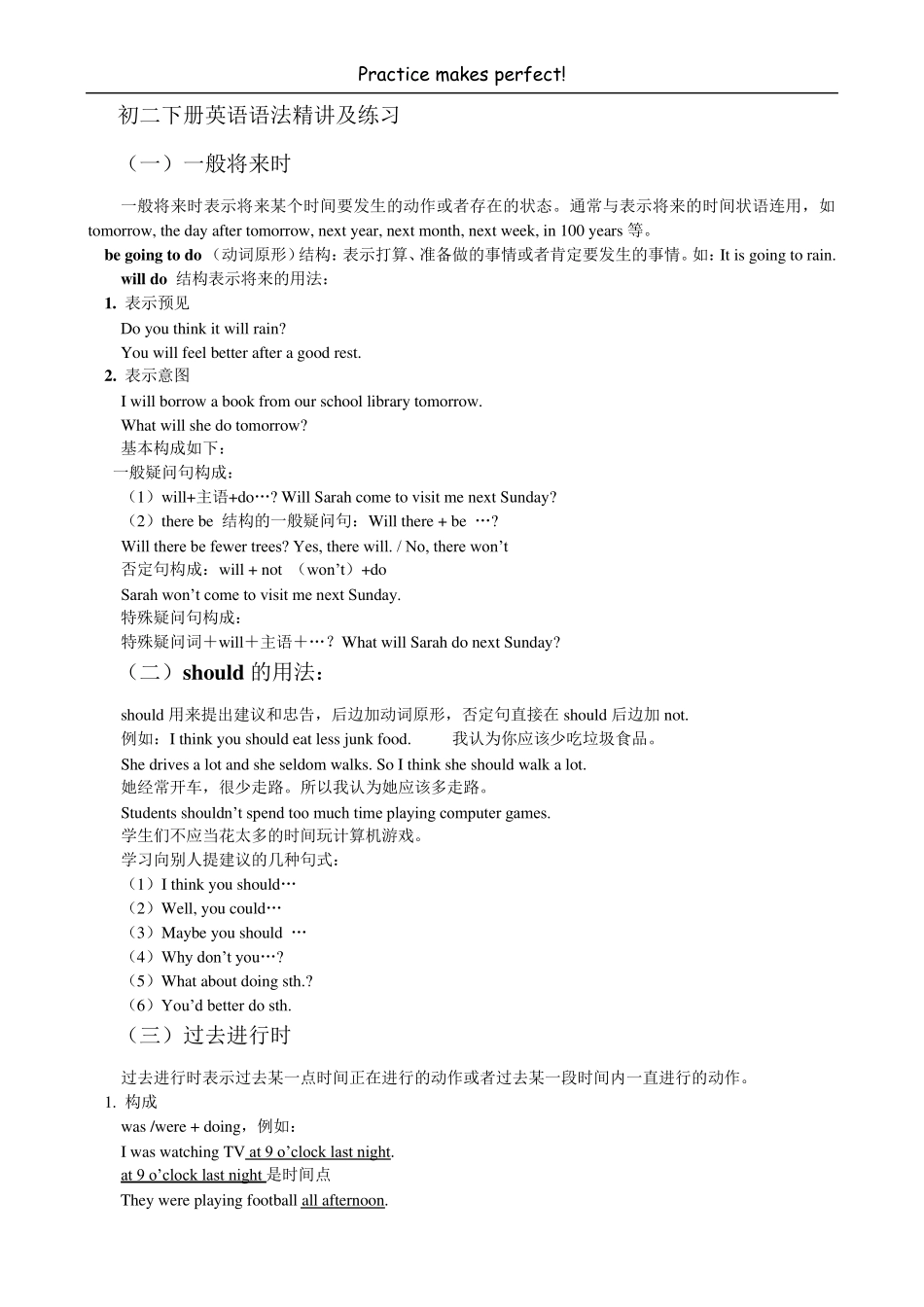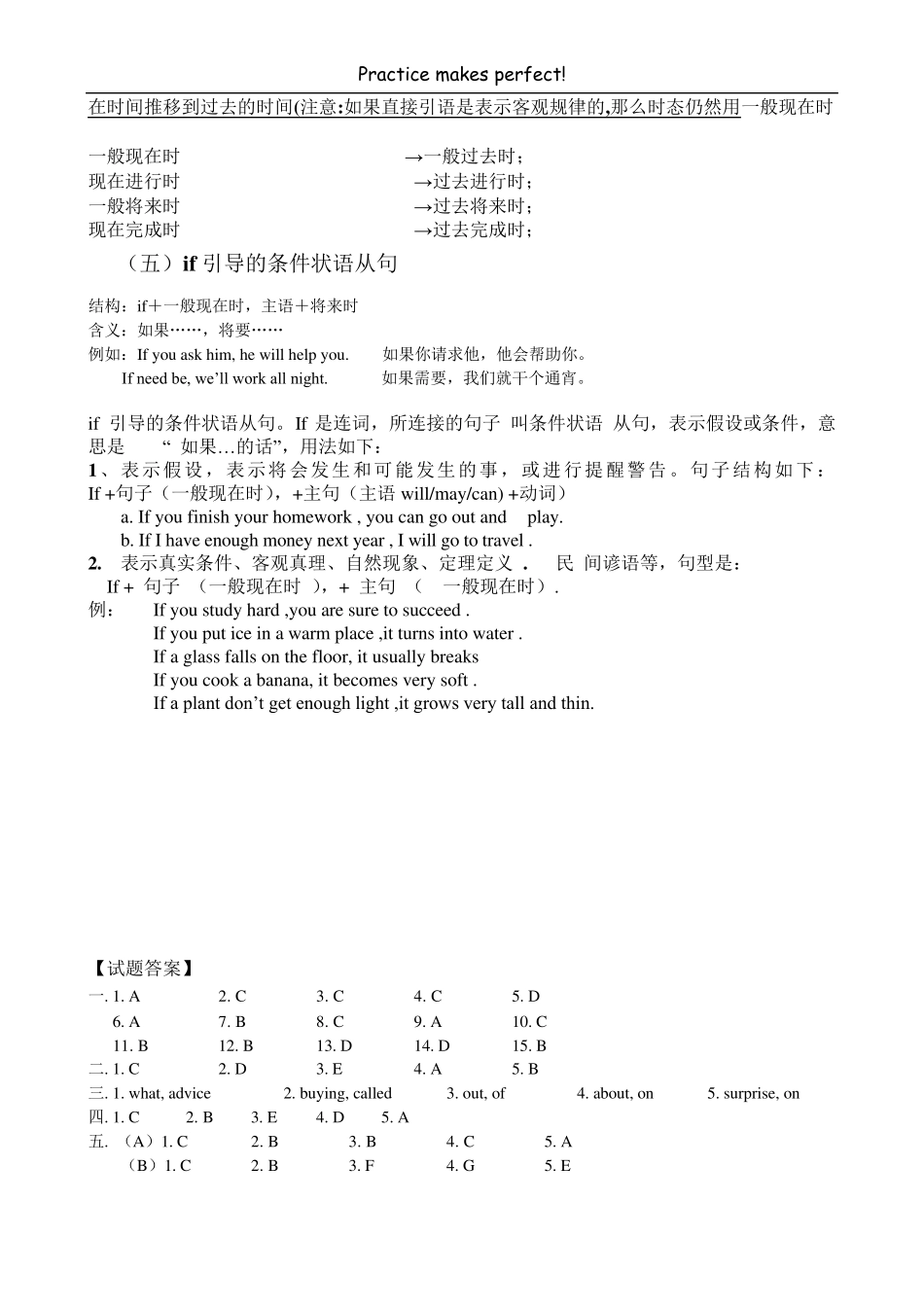Practice makes perfect! 初二下册英语语法精讲及练习 (一)一般将来时 一般将来时表示将来某个时间要发生的动作或者存在的状态。通常与表示将来的时间状语连用,如tomorrow, the day after tomorrow, next year, next month, next week, in 100 years 等。 be going to do (动词原形)结构:表示打算、准备做的事情或者肯定要发生的事情。如:It is going to rain. w ill do 结构表示将来的用法: 1. 表示预见 Do you think it will rain? You will feel better after a good rest. 2. 表示意图 I will borrow a book from our school library tomorrow. What will she do tomorrow? 基本构成如下: 一般疑问句构成: (1)will+主语+do…? Will Sarah come to visit me next Sunday? (2)there be 结构的一般疑问句:Will there + be …? Will there be fewer trees? Yes, there will. / No, there won’t 否定句构成:will + not (won’t)+do Sarah won’t come to visit me next Sunday. 特殊疑问句构成: 特殊疑问词+will+主语+…?What will Sarah do next Sunday? (二)should 的用法: should 用来提出建议和忠告,后边加动词原形,否定句直接在should 后边加 not. 例如:I think you should eat less junk food. 我认为你应该少吃垃圾食品。 She drives a lot and she seldom walks. So I think she should walk a lot. 她经常开车,很少走路。所以我认为她应该多走路。 Students shouldn’t spend too much time playing computer games. 学生们不应当花太多的时间玩计算机游戏。 学习向别人提建议的几种句式: (1)I think you should… (2)Well, you could… (3)Maybe you should … (4)Why don’t you…? (5)What about doing sth.? (6)You’d better do sth. (三)过去进行时 过去进行时表示过去某一点时间正在进行的动作或者过去某一段时间内一直进行的动作。 1. 构成 was /were + doing,例如: I was watching TV at 9 o’clock last night. at 9 o’clock last night 是时间点 They were playing football all afternoon. Practice makes perfect! all afternoon 是时间段 2....


